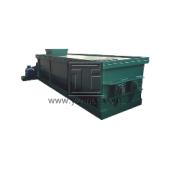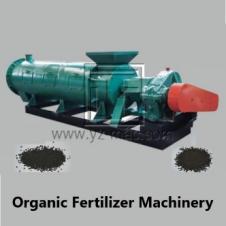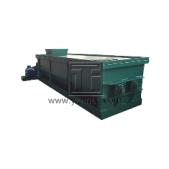Drum Granulator
A drum granulator is a popular equipment used in fertilizer production. It is designed to convert various materials into uniform, high-quality fertilizer granules.
Benefits of a Drum Granulator:
Uniform Granule Size: A drum granulator produces fertilizer granules with a consistent size and shape. This uniformity ensures even nutrient distribution in the granules, promoting balanced nutrient uptake by plants and enhancing fertilizer efficiency.
Controlled Release of Nutrients: The granules produced by a drum granulator can be formulated to release nutrients slowly over time. This controlled-release feature helps optimize nutrient availability to plants, reducing nutrient leaching and minimizing environmental impact.
Increased Nutrient Concentration: Drum granulation allows for the incorporation of multiple nutrients into a single granule. This results in higher nutrient concentrations, enabling efficient and precise application of fertilizers.
Improved Handling and Storage: Fertilizer granules produced by a drum granulator have good physical properties, such as high density and reduced dustiness. This makes them easier to handle, transport, and store compared to powdered or ungranulated fertilizers.
Working Principle of a Drum Granulator:
A drum granulator consists of a large rotating drum that is inclined slightly to allow the materials to move through it. The drum is lined with a rubber or polyurethane coating to prevent sticking and wear. As the drum rotates, a liquid binder or spray solution is added to the materials, causing them to agglomerate and form granules. The size of the granules is controlled by the inclination of the drum, the speed of rotation, and the spraying rate of the binder.
Applications of Drum Granulators:
Agricultural Fertilizers: Drum granulators are widely used in the production of agricultural fertilizers. They can process various materials, including urea, ammonium sulfate, phosphates, and potash, to create granules suitable for different crop nutrient requirements.
Organic Fertilizers: Drum granulation is an effective method for producing organic fertilizers from organic waste materials, such as livestock manure, crop residues, and food waste. The granules produced are rich in organic matter and nutrients, providing valuable soil amendments for organic farming practices.
Compound Fertilizers: Drum granulators are used to produce compound fertilizers, which are blends of different nutrient sources. By combining multiple ingredients in the granulation process, compound fertilizers can provide a balanced nutrient profile for specific crop needs.
Specialty Fertilizers: Drum granulation allows for the addition of micronutrients, beneficial microbes, or other additives to create specialty fertilizers. These tailored products cater to specific soil conditions, crop requirements, or growth stages, providing targeted and customized nutrition for optimal plant growth.
Conclusion:
A drum granulator is a reliable and efficient machine for producing high-quality fertilizer granules. Its benefits include uniform granule size, controlled nutrient release, increased nutrient concentration, and improved handling and storage. Drum granulators find applications in agricultural fertilizers, organic fertilizers, compound fertilizers, and specialty fertilizers.








